
Unlocking Potential with Adaptive Learning
Employee development has evolved and is still changing with a specific view to the future training and development of employees. As markets get more competitive and dynamic in the current world of business, one has learned that change is the norm and that is why continuing education helps. It is for this reason that many conventional approaches to staff development and training such as ‘one size fits all’ models are ineffective in the modern workplace. Introducing adaptive learning – the next-generation solution that takes ALL employees under its ambit with the ultimate goal of creating less time-consuming, highly-effective as well as engaging pan-organizational development processes. What is Adaptive Learning? Adaptive learning is a form of learning that incorporates a form of technology to tailor learning exercises/training and development to the specific learner. Data like performance, learning preferences and knowledge deficits are fed back into adaptive learning platforms and that in turn changes the content, delivery and level of training content in real-time. It makes sure that each mover learner is afforded the right level of challenge, level of requirement, and level of resources to meet their needs. An Analysis of the Scientific Angle of Adaptive Learning At its back, adaptive learning is supported by algorithms and data analytics. These systems are composed of learning management systems that constantly evaluate the employee’s performance over several courses to determine the level of proficiency made and the areas of strength and weakness. This way, the system flexibly adjusts the learning process and offers a more difficult content for those learners who master the language better or brings back the simple material for the learners who have caught up less. This personalized approach is rooted in several key principles:This personalized approach is rooted in several key principles: Personalization: Unlike traditional training, where everyone follows the same curriculum, adaptive learning tailors the content to match the learner’s current skill level, interests, and career goals. Continuous Feedback: In particular, adaptive learning platforms offer the results immediately after the processing of the examined material, so the learner will not only know whether he has done well, but also the set of skills that he or she needs to practice. This feedback loop continues and it helps in the improvement process and also keeps the employees motivated at the workplace. Efficiency: Through personalized learning, the process of training does not contain more information than required and the employees are trained more efficiently in acquiring the new knowledge. Engagement: Part and parcel of accommodating learners is to include various activities or games that make learning enjoyable such as quizzes, simulations and real life events. Why Adaptive Learning Is Relevant to the World of Work With increased pressure to be competitive, learning capability or the ability to quickly skill and re skill has been deemed more valuable than ever. Adaptive learning offers several key advantages that can help companies achieve this:Adaptive learning offers several key advantages that can help companies achieve this: Customized Learning Paths: People have different approaches, abilities, and skills in terms of learning. It provides that the training that each of the employees undertake meets their needs hence making the training effective. Higher Retention Rates: As it is seen, adaptive learning benefiting from the fact that it is adjusted to the learner’s needs and gaining rate typically leads to better knowledge retention. People are more likely to recall and use what they have learnt when what they are learning is both useful and not too complicated. Improved Performance: This is specifically true with adaptive learning because, in learning, employees can devote time to the aspects that are important in their working environment. This cycle of targeting hence results in improved job performance and in essence to organizational success. Cost-Effective Training: Synchronous learning can help organizations to save time in training and possible resources that are non – imperative to training through trimming off those facets that are not useful in employees. This can help in the cutting down of costs within organizations to which can be of great importance. Wrkmen’s Commitment to Adaptive Learning In our company, Wrkmen, we are of the opinion that the future of employee development is individualized. That is why we have been looking at ways of investing in adaptive learning technologies through which the employees can take charge of their learning paths. In particular, through focused and personal professional development, we also guarantee that our team members are ready to meet the requirements of the future. They study the tendencies of learning and change the content in accordance with the results, giving immediate feedback to make an individual approach to the training process. Be it new hires, the existing workforce, or even the next generation of leaders, adaptive learning helps us to begin the training process from where the learner is, and take him or her to where he or she ought to be. Conclusion Adaptive learning is not a concept of passing fad, rather it is a highly effective and practical tool for nurturing employees of today's fast changing work world. This way, by applying the principles of adaptive learning at the workplace, organizations can develop the human resources that are dynamic, competent, and enthusiastic to confront the future of a steeped business environment. We are indeed proud at Wrkmen to be a part of this learning revolution through the use of adaptive learning to empower our staff. On the same note, we will always be aiming at leveraging ourselves by putting in place structures that will help our employees along the way.
GENERAL
Wrkmen
7/14/20241 min read
Projects
CSR
NSDC
PBSSD
UNICEF
Copyright © 2025 All rights reserved | WRKMEN
Useful Links
Training
Placement
Writing
Consulting
IOT & Development


Wrkmen drives innovation with purposeful digital solutions. Discover our vision, services, and projects. Together, we create technology that inspires growth, trust, and lasting impact in every journey.
